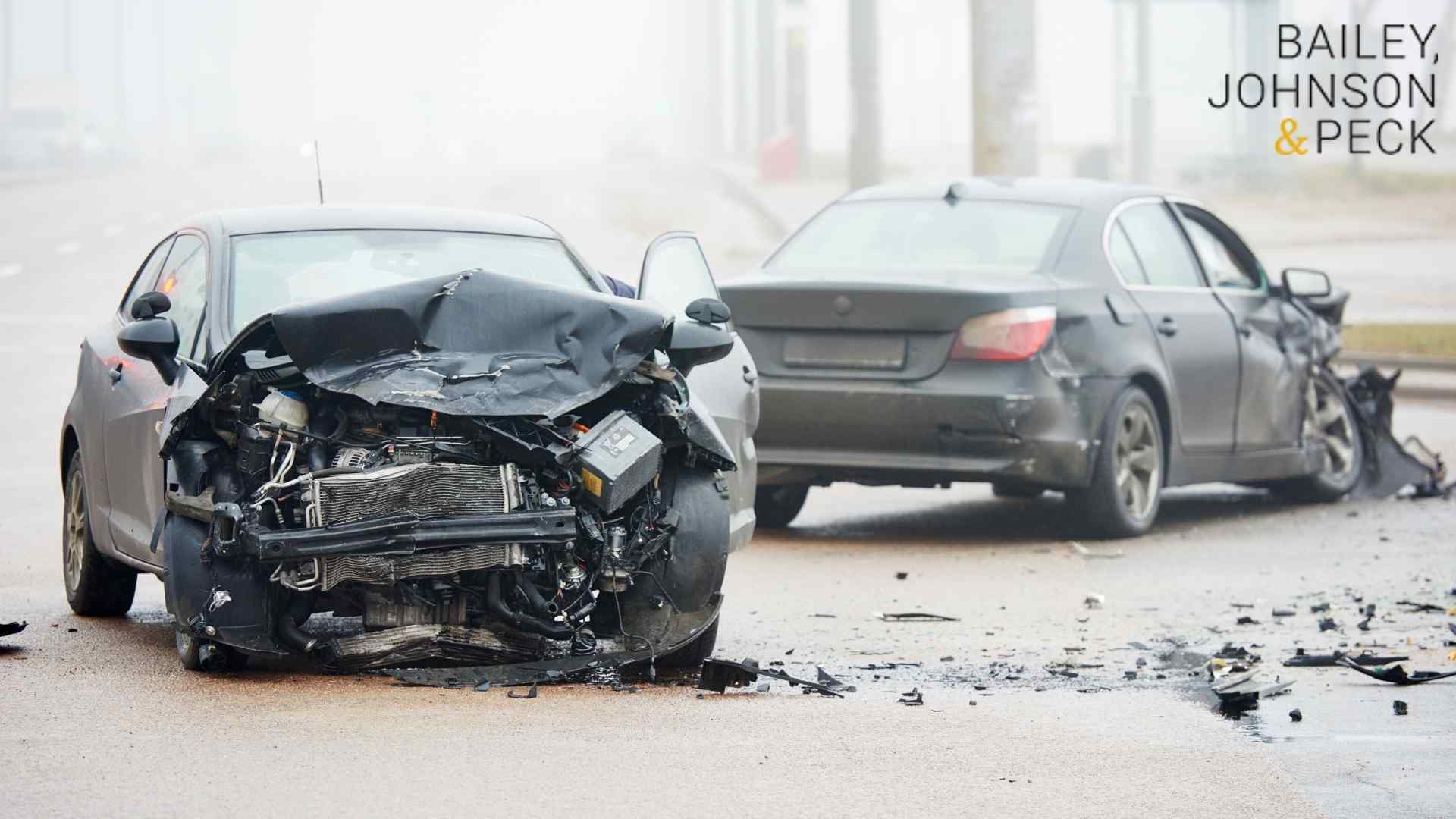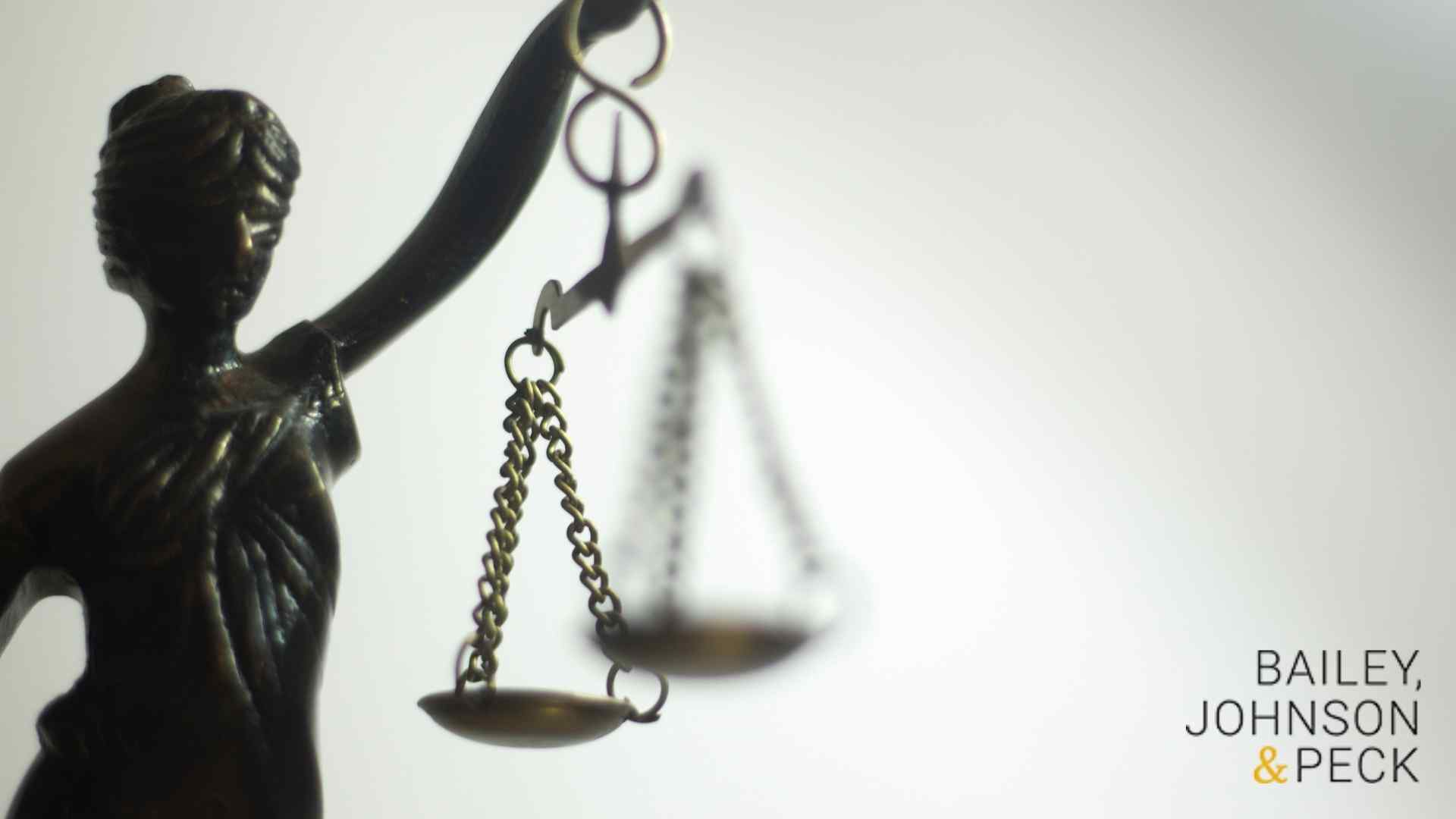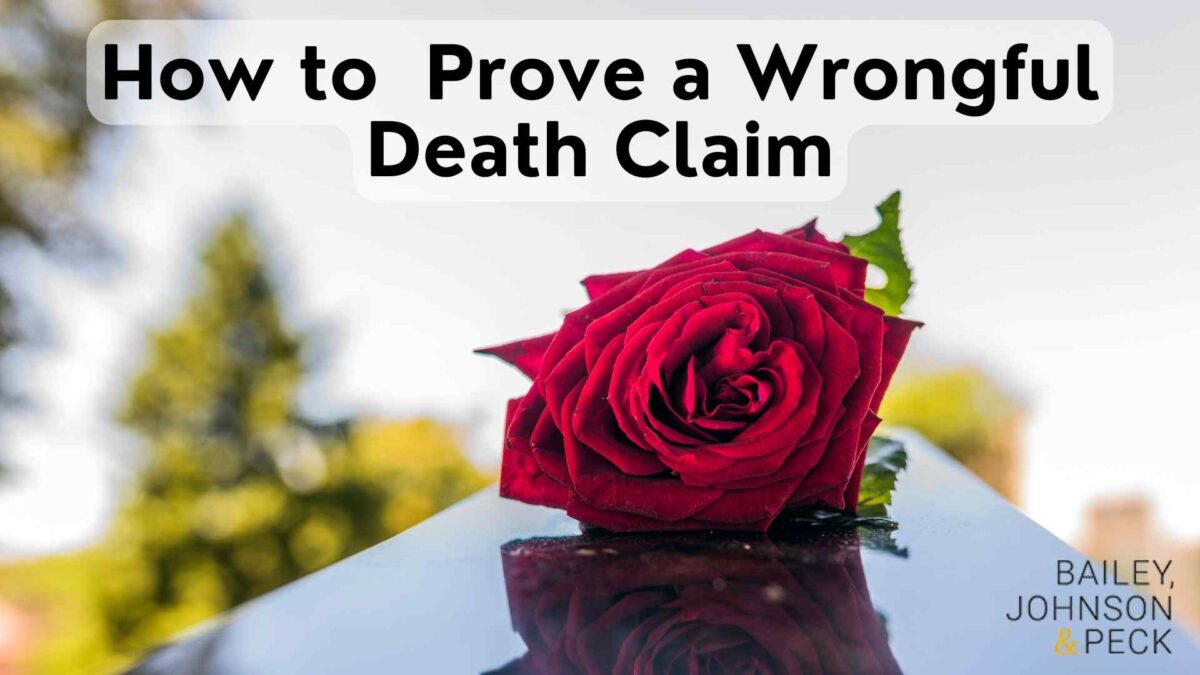When tragedy strikes, and a family member’s passing is the result of another’s negligence or misconduct, proving wrongful death becomes a critical step toward justice. For the Albany wrongful death attorneys at Bailey, Johnson, & Peck, this is more than a legal challenge; it’s a mission to restore a sense of balance to families shaken by loss.
Wrongful death suits are some of the most challenging legal claims that both families and attorneys can undertake. However, understanding the process clearly and the importance of working with an experienced wrongful death lawyer from Bailey, Johnson, & Peck can make these proceedings less overwhelming.
If you’ve recently lost a loved one and want to know more about how to file a wrongful death claim, the compassionate attorneys at Bailey, Johnson & Peck are here to help. To schedule a free consultation with a New York wrongful death attorney, call 518-456-0082 today.
What is Wrongful Death?
Wrongful death is the untimely passing of someone who was injured in an accident caused by another person’s negligence. Their injuries were so severe that it led to their death.
When another’s negligent actions cause harm, it’s the right of the injured party to pursue compensation for the damages that they incurred due to that person’s negligence. A wrongful death claim allows the surviving family the ability to recover compensation against the negligent party. Whereas a personal injury claim would result in damages to reimburse the victim for things like lost wages and physical therapy, wrongful death settlements work to recover compensation for the bills and expenses paid by the family as a result of their loved one passing away.
Common Causes of Wrongful Death
The most common types of wrongful death cases that the attorneys at Bailey, Johnson, & Peck represent are as follows.
This includes errors in diagnosis, treatment, aftercare, or health management. Medical negligence is one of the leading causes of wrongful death lawsuits, where physicians, nurses, or other healthcare professionals provide care that falls below the accepted standard, leading to the patient’s death. Our Albany medical malpractice attorneys and Albany misdiagnosis attorneys have the skill and experience necessary to handle these cases.
Deaths resulting from car, motorcycle, truck, or other vehicle accidents can be considered wrongful if they were due to another driver’s negligence, such as drunk driving, distracted driving, reckless driving, or violation of traffic laws. Our Albany car accident attorneys have seen the impact that these types of fatalities have on loved ones, which is why we’re dedicated to helping them recover compensation.
These occur when employees die as a result of unsafe working conditions or accidents, particularly in high-risk industries like construction. Employers might be liable if they fail to provide adequate safety equipment or training.
Dangerous or defective products can lead to death, and manufacturers, distributors, or retailers may be held responsible if they fail to warn consumers about the risks or if the product is inherently unsafe. Product liability law can be very complex, so be sure to consult with an Albany product liability attorney for more insight on your case.
Property owners could be liable for wrongful deaths on their property due to dangerous conditions, such as slip and fall accidents, inadequate security, or structural collapses. Similarly to product liability cases, premises liability cases can be complex as well. Consulting with an Albany slip and fall accident lawyer can give you the best chance at forming a strong case.

Parties in a Wrongful Death Lawsuit: Plaintiff vs. Defendant
Wrongful death cases involve two parties: the plaintiff and the defendant. The plaintiff is the party who brings the lawsuit to court. In wrongful death cases, the plaintiff is either a family member or a personal representative of the deceased’s estate. The plaintiff could be:
The surviving spouse, putative spouse, or life partner
An immediate family member, like children or parents)
Distant family members, like aunts, uncles, cousins, etc. (in cases where the deceased does not have immediate family members)
The defendant can be an individual, a corporation, a government agency, or any other entity. In a wrongful death case, the defendant is alleged to be responsible for the death due to some form of wrongdoing or negligence. The defendant could be:
A doctor or hospital in the case of medical malpractice.
A driver or their employer in the case of a vehicle accident.
A manufacturer or distributor, in the case of defective products.
A property owner in the case of premises liability.
An employer, in the case of a workplace accident.
In some wrongful death suits, there may be multiple plaintiffs or defendants involved. Each side will present evidence to support their position, and the resolution may come through a negotiated wrongful death settlement or a court judgment following a trial.
How a Civil Wrongful Death Case Differs From a Criminal Homicide Case

A civil wrongful death case and a criminal homicide case differ primarily in their objectives, burden of proof, and consequences. A civil wrongful death lawsuit seeks financial compensation for the deceased’s family members or estate for losses resulting from the death. A wrongful death suit can result in damages for lost wages, funeral expenses, and emotional distress. It is filed by the representatives of the deceased’s estate against the party allegedly at fault.
On the other hand, a criminal homicide case is pursued by the state against an individual accused of causing someone’s death through illegal conduct, aiming for punishment such as imprisonment. The two types of cases can proceed independently, and a party found liable in a civil case may not necessarily be found guilty in a criminal case, and vice versa.
Burden of Proof
The burden of proof in civil wrongful death cases compared to criminal homicide cases differs significantly. In civil wrongful death claims, the burden of proof is on the plaintiff, who must demonstrate their case by a “preponderance of the evidence.” This means the evidence must show that it is more likely than not that the defendant’s actions caused the death of the deceased.
In a criminal homicide case, the burden of proof is on the prosecution, which must establish the defendant’s guilt “beyond a reasonable doubt.” The evidence must be so convincing that there is no reasonable doubt in the mind of a reasonable person that the defendant is guilty.
While both types of cases involve the death of a person and possibly the same underlying facts, the level of certainty required to meet the burden of proof is much higher in criminal cases due to the potential loss of the defendant’s liberty and the serious nature of the punishment.
Consequences
The consequences of wrongful death claims versus criminal homicide cases are significantly different. The primary consequence of a civil wrongful death claim is the financial liability of the defendant. The defendant may be ordered to pay damages to the plaintiff, including compensation for medical bills, funeral expenses, loss of income and benefits, loss of consortium, and sometimes punitive damages if the conduct was especially horrific.
The other main difference between the consequences stemming from these cases is criminal homicide cases aim to incarcerate the guilty party as punishment. Civil wrongful death cases don’t result in criminal charges, so the defendant isn’t at risk of imprisonment when found guilty.
In essence, civil wrongful death lawsuits are about compensating the victim’s family for their loss, while criminal homicide cases punish the wrongdoer and seek justice on society’s behalf.
Who Can Sue for Wrongful Death in New York?
In New York, the individuals who can sue for wrongful death are limited to the personal representative of the deceased person’s estate. This means that only the executor or administrator appointed by the court, often named in the will, has the legal authority to file a wrongful death claim.
While the executor is the one to initiate the lawsuit, the damages recovered are for the benefit of the surviving family members. These family members typically include:
The spouse of the deceased person
Children of the deceased person
Parents of the deceased person, if there are no surviving spouse or children
Although these surviving family members are the beneficiaries of any awarded damages, they cannot file the wrongful death claim themselves unless they are also serving as the personal representative of the estate.
How to Prove a Wrongful Death Claim
Not all wrongful death suits involve death caused by someone else’s negligent actions. In some rare cases, the defendant’s actions were intentional, resulting in a wrongful death.
Whether your family member’s death was the result of intentional or negligent actions, your experienced wrongful death lawyer from Bailey, Johnson, & Peck will work diligently to gather evidence to support these claims.

The Death Was Caused by an Intentional Act
When an intentional act causes a wrongful death, it implies that the person responsible for the death did so with the deliberate intention to cause harm or with a reckless disregard for human life.
In a wrongful death claim, the plaintiff must show that the defendant’s intentional conduct directly led to the death. This does not necessarily require proving that the defendant intended to kill the victim, but rather that they intended the act which caused the death. In legal terms, this could be understood as “intent to commit a harmful act,” which ultimately resulted in the individual’s death.
The Death Was Caused by a Negligent Act
Wrongful death claims resulting from negligent actions by the defendant are more common and depend on establishing the four elements of negligence. In other words, that the defendant acted outside of the reasonable person’s standard. To prove this, your Albany wrongful death attorney will collect evidence, like medical records, showing a direct link between the defendant’s negligence and your family member’s death.
Duty of Care
The defendant owed the deceased a duty of care. For example, motorists should obey traffic laws, doctors must follow medical standards, and manufacturers must avoid producing dangerous goods.
Breached Duty of Care
The defendant breached that duty of care through their negligent actions. For example, a driver who runs a red light breaches their duty of care to other motorists, or a doctor who fails to diagnose a treatable condition violates their duty to provide standard medical care.
Causation
Causation links the defendant’s breach of duty directly to the death of the decedent. Wrongful death attorneys must prove that the death would not have occurred had the defendant not acted negligently. For instance, if a pedestrian dies as a result of being hit by a car whose driver was texting, causation is established between the driver’s breach of duty (negligent driving) and the pedestrian’s death.
Damages
Due to the death of their loved one, family members have suffered both an emotional and financial loss. The damages awarded in a wrongful death case are to provide financial relief to the survivors for their monetary and emotional losses and, to some extent, to penalize the wrongdoer for their negligent conduct that led to the loss of life.
The financial compensation that family members receive addresses both the economic and non-economic impact that they’ve suffered following their loss. Economic damages are quantifiable financial losses that can be proven through medical records and documentation. Non-economic damages are more intangible losses that are harder to quantify and often require testimony from expert witnesses.
Economic Damages
The following wrongful death economic damages could be awarded to your family following a successful lawsuit:
Medical expenses
Lost wages
Funeral costs
Burial costs
Loss of benefits
Loss of inheritance
Non-Economic Damages
As of 2019, family members are no longer able to recover non-economic damages for emotional distress, loss of companionship, or pain and suffering for wrongful death claims in New York. However, your wrongful death attorney can work towards recovering non-economic damages for the conscious pain and suffering and fear of imminent death that your loved one experienced before their passing.
Punitive Damages
Unlike economic and non-economic damages, punitive damages are not awarded to compensate the surviving family. Instead, they are monetary penalties imposed on defendants to further punish them for particularly harmful behavior and to deter future negligence. Not all wrongful death suits qualify for punitive damages. These damages are only reserved for cases where the defendant’s actions went beyond ordinary negligence. In New York, there are no limits to the amount of punitive damages that can be awarded.
What is the Statute of Limitations for Wrongful Death Claims in New York?
In New York, the wrongful death statute is two years following the death of a loved one. Even though two years may seem like a long time, the surviving spouse and family should contact an Albany wrongful death attorney sooner rather than later. The longer families wait to file their wrongful death case, the more they’re at risk of losing significant evidence, which can make proving wrongful death much more difficult.
Call Albany Wrongful Death Lawyers at Bailey, Johnson & Peck Today
The wrongful death attorneys at Bailey, Johnson & Peck offer more than just legal representation; they bring a compassionate understanding with every wrongful death lawsuit they handle. With their comprehensive knowledge of New York state laws and a commitment to securing justice, they provide unparalleled support for those struggling with loss.
To schedule a free consultation with one of our wrongful death attorneys, call Bailey, Johnson & Peck at 518-456-0082 today.




